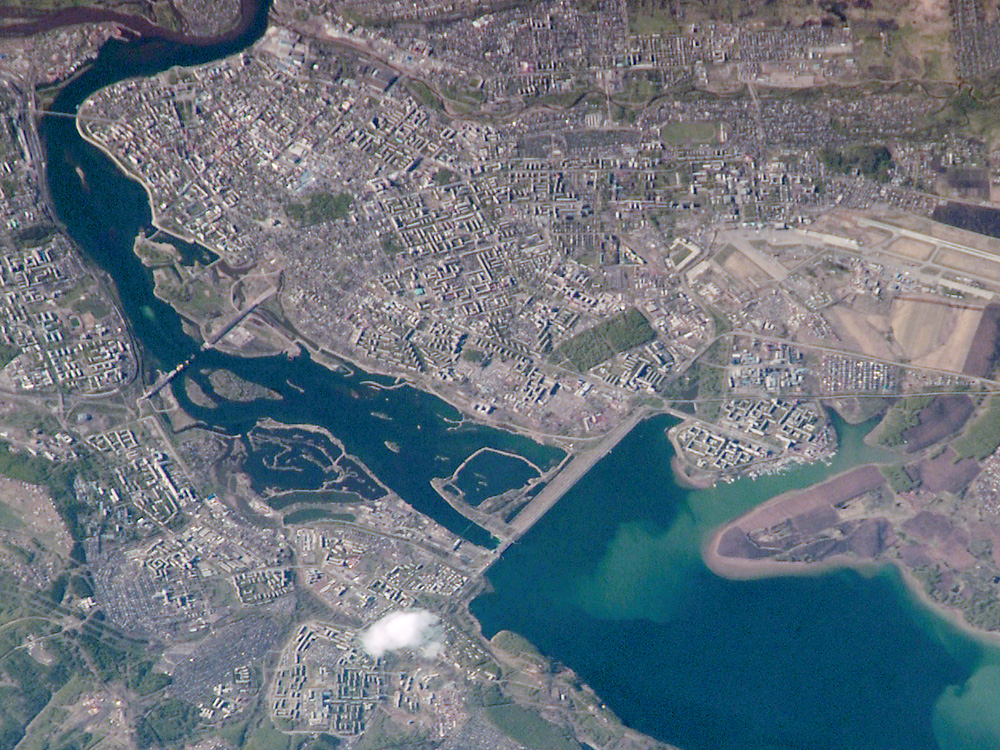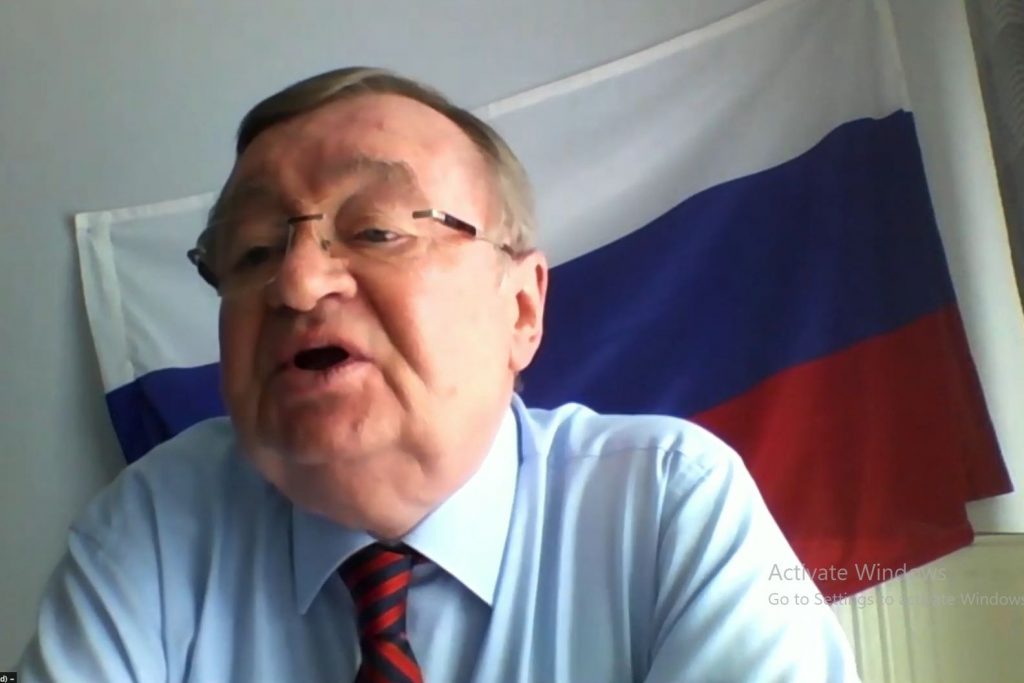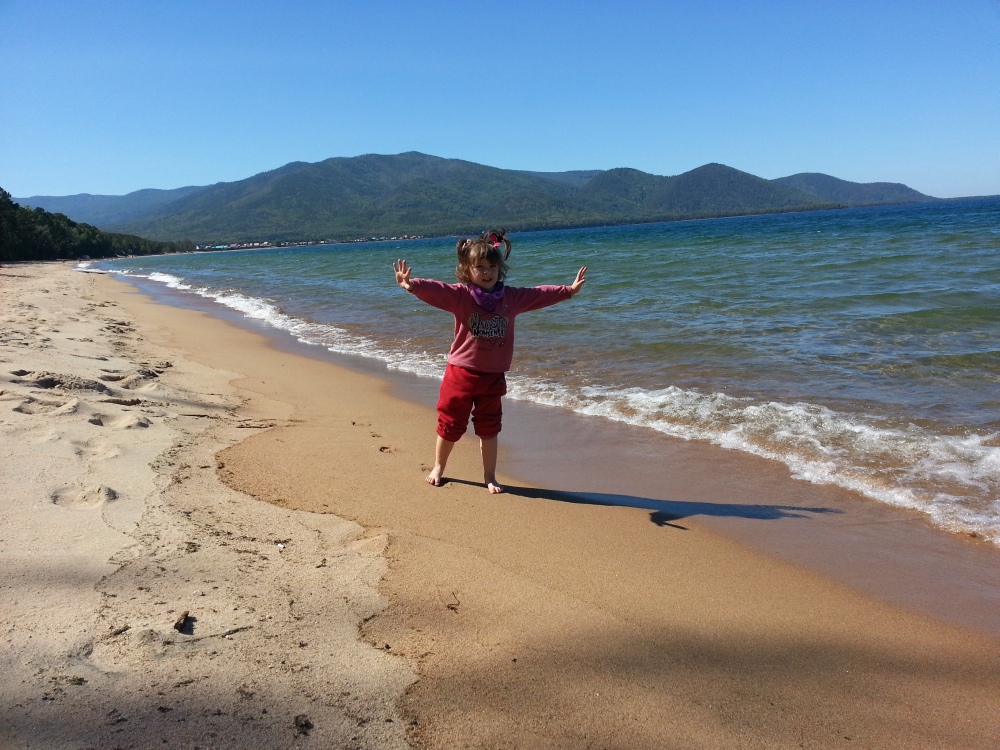
On July 23 the 44th Session of the World Heritage Committee, held at Fuzhou in China, unanimously approved (without discussion) a new Decision on the Lake Baikal – the most troubled property of the Russian Federation. As an observer at the Session, Eugene Simonov, Coordinator of the Rivers without Boundaries International Coalition (RwB) expressed gratitude to the Committee for adopting a blueprint for preventing further exacerbation of severe problems plaguing the Lake:
Thank you, Your Excellency, for letting me to speak on behalf of the Lake Baikal! The ecological crisis unfolding at the Lake Baikal is complicated by crisis in management. Right now, due to flawed or delayed decisions, the Sacred Lake is being haphazardly used as a flood-control reservoir, while accumulated waste affluent from the Baikalsk Pulp Mill is processed and discharged without proper impact assessment, and rampant construction of illegal facilities is proceeding with increasing pace along the shores[1]. Therefore, we want to congratulate the State Parties concerned and the Committee Members on adopting a comprehensive decision that addresses most urgent threats and provides a road for improving overall management of the property and the basin on which it depends. We hope that now the States Parties concerned will without any delay decide how to implement your decision to address current crisis and possible “in danger listing”. We also wish that following this decision Mongolia and Russia jointly start the Strategic Environmental Assessment on impacts from any water management projects, also addressing governance of the transboundary basin and adaptation to climate change.
To save Lake Baikal we all need to improve timely communication on the key issues, including communication between State Parties and civil society organizations as legitimate stakeholders also assisting participation by local communities. We are deeply concerned, with a request to silence NGOs expressed by one of the State Parties at this Session.

On behalf of Mongolian and Russian Civil Society Organizations we pledge to support implementation of your wise decision, cooperate with all actors, and look forward to in-depth assessment of progress on each issue in Kazan next year. Thank you, Mr. Chair
[1] See “Lake Baikal in Crisis” –for a full review of the state of conservation published by Elsevier in 2021 https://www.researchgate.net/publication/351858572 DOI: 10.1016/B978-0-12-821139-7.00055-6
Decision: 44 COM 7B.107 (Below – draft decision approved by the Committee, which will come into force on July 31, when all decisions are enacted)
The World Heritage Committee,
1. Having examined Document WHC/21/44.COM/7B,
2. Recalling Decisions 39 COM 7B.22, 40 COM 7B.97, 41 COM 7B.6 and 42 COM 7B.76, adopted at its 39th (Bonn, 2015), 40th (Istanbul/UNESCO, 2016), 41st (Krakow, 2017) and 42nd (Manama, 2018) sessions respectively,
3. Notes with utmost concern several proposed amendments to existing legislation and new laws, which would significantly weaken the existing regulatory framework in terms of requirements for impact assessments and allowable levels of pollutants, and considers that the scale of this weakening of the regulatory provisions, at the time when the property’s ecological conditions continue to deteriorate, is such that, if all proposed changes proceed, the property would face potential danger in line with Paragraph 180(b) i) and iv) of the Operational Guidelines;
4. Requests the State Party to undertake a comprehensive review of all proposed legislative changes and their interdependencies, that could potentially affect the property and urges the State Party not to approve any changes that would weaken the existing protection regime of the property and strengthen the Law on the Protection of Lake Baikal to ensure that the protection of the Outstanding Universal Value (OUV) of the property can be guaranteed through a cross-sectoral approach;
5. Notes the information provided by the State Party that no damage has been observed on the environment as a result of measures taken on water level fluctuations, but regrets that its request to undertake a complete and comprehensive Environmental Impact Assessment (EIA) of the impacts of existing water use and management regulations on the OUV of the property has not been implemented;
6. Urges again the State Party to revoke all amendments introducing changes of the limits on fluctuation and not to introduce any further regulatory changes providing for further extension of the range of allowed water level fluctuation until the impacts of all existing water use and management regulations on the OUV of the property are fully understood through a complete and comprehensive EIA and also requests the State Party to submit the EIA to World Heritage Centre for review by IUCN;
7. Also regrets that no information has been provided by the State Party regarding the remediation of the former Baikalsk Pulp and Paper Mill (BPPM) site, nor regarding the planned EIA for this process, and reiterates its request to the State Party to develop and submit this EIA including an assessment of possible options for the future uses of the site and their potential impacts on the OUV of the property, for review by IUCN, and also urges the State Party to ensure that the best possible options are chosen in terms of selection of technologies and implementing entities;
8. Regrets once again that the State Party did not submit either the results of the EIAs for each Special Economic Zone (SEZ) located within or overlapping with the property or a Strategic Environmental Assessment (SEA) for all SEZs regarding existing and future developments and their cumulative impacts on the OUV of the property, and further urges the State Party to complete these assessments as a matter of priority and to submit them to the World Heritage Centre, for review by IUCN, as soon as they are available;
9. Expresses concern about the reported increase of illegal constructions on the lake shore, even within protected areas and urges furthermore the State Party to address this threat as a matter of urgency;
10. Welcomes the draft action plan to improve the system for forest fire protection within the property, and also reiterates its request to the State Party to also provide an update on the assessment of impacts of forest fires on the lake ecosystem;
11. Takes note of the information provided by the State Party of Mongolia that the Terms of Reference for the Regional Environmental Assessment for the proposed Shuren and Orkhon hydropower projects have been finalized, and further requests the State Party to clarify how this process will be linked with the development of a transboundary SEA, as requested by the Committee;
12. Acknowledges the further progress on the planned study on the impacts of the Egiin Gol hydropower plant project (EGHPP) on the biodiversity of the property, and further reiterates its request to the State Party of Mongolia to take into account the findings and recommendations of the 2015 mission, especially regarding assessing impacts on the habitats of endangered migratory freshwater species of the Selenga/Lake Baikal complex, and to submit this study to the World Heritage Centre, for review by IUCN, as soon as it is available;
13. Reiterates furthermore its request to the States Parties of Mongolia and the Russian Federation to implement the recommendations of the 2015 mission as well as the requests in Decisions 39 COM 7B.22, 40 COM 7B.97, 41 COM 7B.6 and 42 COM 7B.76, and to jointly develop a transboundary SEA for any existing and planned hydropower and water management projects ensuring that its results guide the elaboration of EIAs of any specific individual projects, including the planned Shuren hydropower and Orkhon river projects;
14. Requests furthermore the State Party of the Russian Federation to invite a joint World Heritage Centre/IUCN Reactive Monitoring mission to the property to review the threat posed to it by the different legislative changes, the existing and proposed developments in the SEZ and the remediation plans for the former BPPM, ensuring that, given the complexity of the issues, the mission members can meet with all the relevant national and regional authorities and has access to all relevant legislative documents, including the abovementioned comprehensive review of recent legislative changes, which should be compiled prior to the mission;
15. Requests moreover the States Parties of the Russian Federation and Mongolia to organize a meeting, through appropriate means, with the Reactive Monitoring mission team to allow the mission to assess the full range of issues potentially affecting the hydrological and ecological conditions of the property;
16. Finally requests the State Party to submit to the World Heritage Centre, by 1 February 2022, an updated report on the state of conservation of the property and the implementation of the above, for examination by the World Heritage Committee at its 45th session in 2022, with a view to considering in the absence of substantial progress in addressing the above, the possible inscription of the property on the List of World Heritage in Danger.
WHC/21/44.COM/7B, page 292 https://whc.unesco.org/document/187771


